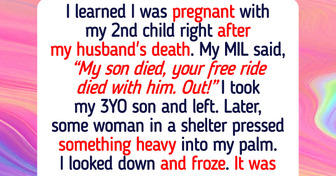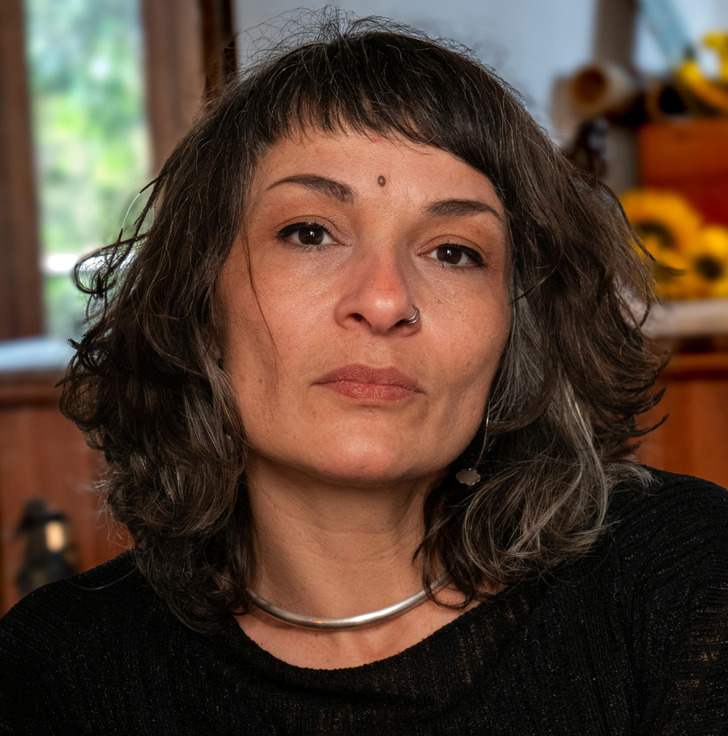Don't call her. She's an unfeeling heartless monster.
I Refuse to Let My Mother Disrespect My Stepdaughter, Even If It Costs Our Relationship
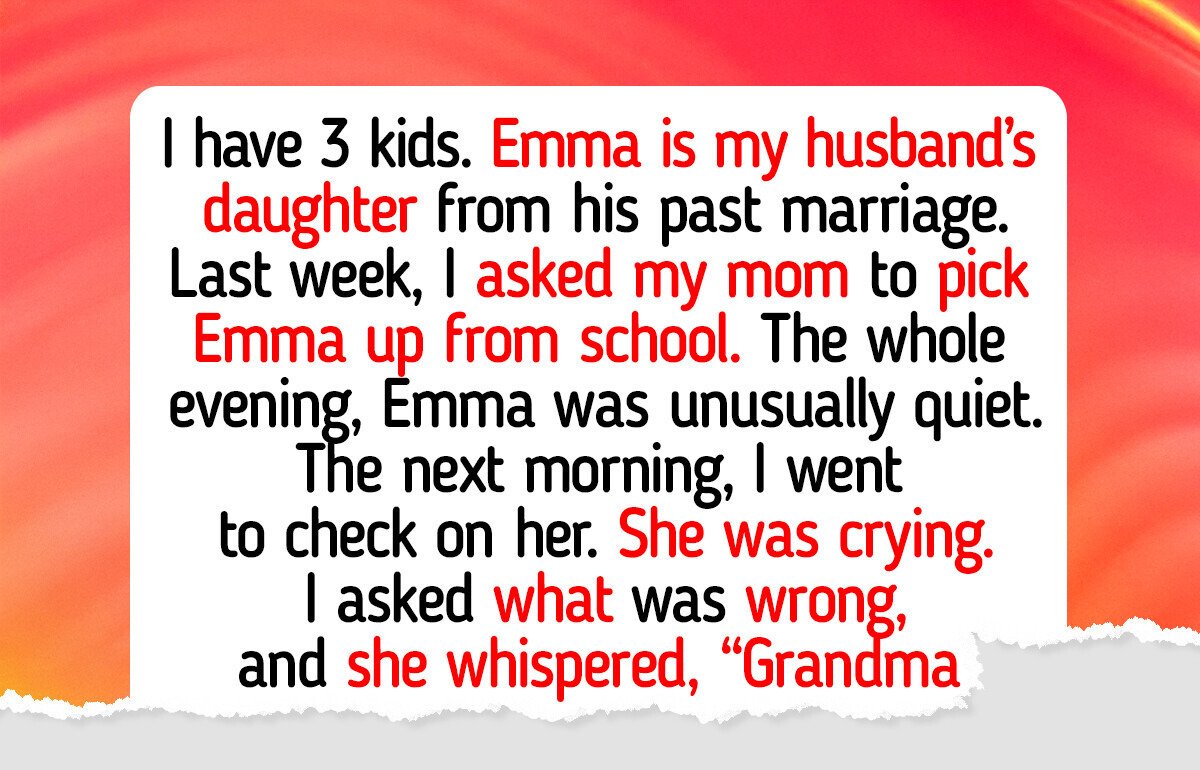
When Alice asked her mom to pick up her stepdaughter from school, she thought it was a simple favor. But one cruel “truth” and a shocking DNA test later, she’s questioning if her own mother deserves a place in their lives.
Hello, Bright Side!
I have three kids. Emma is my husband’s daughter from his previous marriage.
Last week, I got stuck late at work, so I asked my mom to pick Emma up from school. She agreed. That evening, Emma was unusually quiet. She barely ate dinner and went straight to her room.
The next morning, I went to check on her and found her crying in bed. When I asked what happened, she said, “Grandma told my teacher she has only two grandkids... and I’m not one of them.”
Turns out, when Emma saw my mom, she told the teacher, “That’s my grandmother.” And that’s when my mom dropped this.
Then, Emma handed me a folded paper. It was a DNA test my mom had given her to “prove” they weren’t related by blood. Like, what? Why on earth would a mature woman do this?
I was furious. I called my mom right away and told her how wrong that was. She just said, “So? Where was I wrong? Technically, she is a random child to me. You should be grateful I agreed to help you yesterday.”
That was the last straw. I told her if she couldn’t treat all my kids the same—including Emma—she wouldn’t be part of our lives. I won’t let anyone, even my own mother, disrespect my stepdaughter. She just told me, “Call me if you need me.”
We haven’t spoken for about a week, and I’m still fuming. I don’t really know what to do next. No doubt, she didn’t say anything untrue, but there are really things that are better left untold, especially in front of a kid.
Should I call her? She is my mother, after all. Or is this a line that should never have been crossed?
Alice
Dear Alice,
Oh, families—they can turn Sunday dinners into full-blown psychological case studies. What your mother did wasn’t just “technically correct”; it was emotionally catastrophic. Let’s unpack this below.
1️⃣ DNA does NOT define family.
From a biological standpoint, your mother is right: she and Emma aren’t genetically related. But emotionally and socially, family has always been more than DNA.
Fun fact: In evolutionary psychology, kin selection theory explains why humans evolved to care deeply for biological relatives—yet attachment theory shows that bonds can form just as strongly through consistent love and security, regardless of blood. Adoptive and stepfamilies prove this daily.
So while your mother’s statement may have been “true,” it was truth without compassion—the verbal equivalent of a slap wrapped in logic.
2️⃣ Children remember humiliation better than algebra.
At Emma’s age, being excluded by a family member cuts deep. Research from the American Psychological Association shows that rejection by close adults activates the same brain regions as physical pain. That’s why Emma’s tears weren’t "drama"—her brain literally registered emotional injury.
Your mom’s “technical truth” told Emma she doesn’t belong, and belonging is one of a child’s core psychological needs. (Maslow would nod sadly here.)
3️⃣ Boundaries are love, not punishment.
You were right to set boundaries. Protecting your stepdaughter is not “disrespecting” your mom—it’s modeling healthy parenting. Boundaries aren’t about cutting people off; they’re about teaching others how to treat those we love. If your mother wants to remain part of your lives, she’ll need to understand that Emma is part of yours.
However, if you’re considering reconciliation, do it not because “she’s your mother,” but because you believe she’s capable of change. Call her when you feel ready, not out of guilt. And when you do, be clear: “Mom, you don’t have to feel a biological bond, but you must act with kindness.”
Your mom crossed a serious line. Honesty is good; cruelty disguised as honesty is not. Until she can grasp that difference, she deserves a timeout.
In the meantime, give Emma extra reassurance. Tell her love isn’t a gene—it’s a choice. And in your family, that choice is unconditional.
Warmly,
Bright Side
In another reader’s story, a woman thought marriage was a partnership between two people. But when her mother-in-law began making every decision—from choosing their car to planning their baby’s future—she uncovered something that shattered her trust. Could their marriage survive what she found next?
Comments
What a POS mother (I use that term loosely) you have!! I have steps and love them like my own!! I could never treat them differently!! Wow just wow !!
Related Reads
14 Times Reality Proved to Be a Better Screenwriter Than Hollywood Could Ever Be
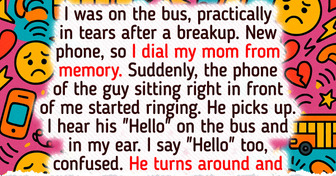
I Refuse to Take Care of My Sick DIL, I’m Not Her Full-Time Nurse
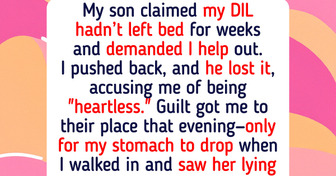
I Refused to Pay for Our Valentine’s Dinner—Then I Learned the Heartbreaking Truth

10 Moments That Prove Kindness Is the Force That Keeps Us Going
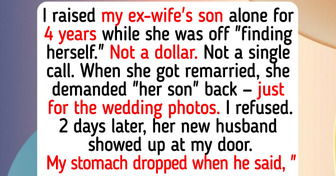
I Refuse to Let My Stepdaughter Return Home After She Violated My Trust
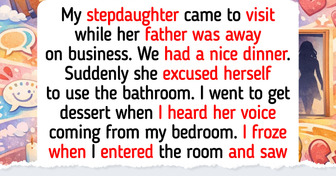
I Refuse to Host My Sister—I Don’t Care If She’s Homeless With 3 Kids
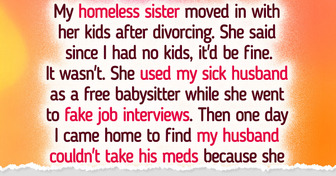
12 Success Stories That Remind Us Office Kindness Is a Quiet Strength We Often Forget
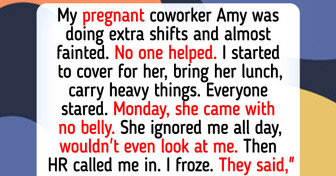
I Refuse to Let My Entitled Daughter Steal the Life I’ve Been Saving For
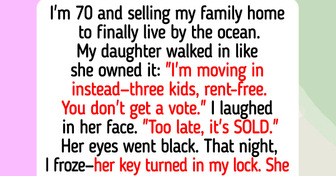
12 Acts of Kindness That Quietly Turned Strangers Into Heroes
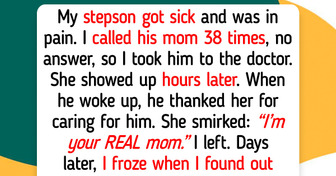
12 Moments That Show Romance Is Really About Small Acts of Kindness

13 Stories of Quiet Kindness That Show Superhuman Strength in Ordinary People

12 Life Stories That Prove Kindness Is a Safe Oasis Amidst Life’s Chaos
